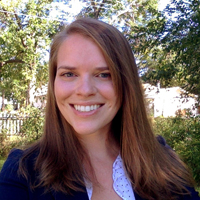 A Post from Julia Moore, OSCLG Member and PhD Candidate at University of Nebraska-Lincoln
A Post from Julia Moore, OSCLG Member and PhD Candidate at University of Nebraska-Lincoln
What does it mean to be a childfree/childless by choice academic woman? On one hand, we live in a culture that expects women to have—and want to have—children. On the other, academic women sometimes face pressure to forgo childbearing and childrearing in favor of total devotion to academic life. Academic women, then, stand in a contradictory intersection where motherhood is both prescribed and shunned.
What I have found in my reading and research is that both academic women and childfree/childless by choice women are deemed masculine, hard, ego-driven, and/or career-obsessed because of their childbearing and career choices. However, both academic women and childfree/childless by choice women are also, at times, expected to be nurturing because they are women. Some therefore find themselves in a precarious position in their departments, where the intersections of their identities work against them professionally. Specifically, these dueling expectations sometimes lead to undesirable work scenarios for these women. A professor in her 40s shared with me:
I feel like the tension that I feel the most is because I am a woman I’m expected to care more about the department, and because I’m childfree, I’m expected to be more flexible in my scheduling in the department. So that’s like a double whammy. . . . it feels like the people who have children have decided—have made it an environment or created an environment where they are given preferential treatment for having children. And for the people who don’t have children, they have to pick up the slack. . . . I think that the expectation is that as the woman in the department who is childfree that I am there to take care of all of them.
Although this is by no means a universal experience, multiple childfree/childless by choice academic women have articulated similar experiences, including undesirable scheduling of classes and meetings to students’ expectations for extra time and emotional labor from students.
is by no means a universal experience, multiple childfree/childless by choice academic women have articulated similar experiences, including undesirable scheduling of classes and meetings to students’ expectations for extra time and emotional labor from students.
So what should be done? What can be done?
Without question, academic women should be free to have—or not have—children, and organizational policies and interpersonal communication practices should foster fair and equitable practices among scholars of all backgrounds. We should all work to be mindful of the consequences of relying on assumptions about women as automatic nurturers.
This research, as always, is only partial—future work can and should be done to understand how academic mothers, fathers, and those who are childfree/childless by choice can mutually thrive in the academy. Anyone interested in co-researching this in the future? 😉
One of my grad students and I are involved in a topic tangential to yours–academic mothers by choice and finding ourselves in a growing minority. We too, and to quote you, “are deemed masculine, hard, ego-driven, and/or career-obsessed because of their childbearing and career choices.” Rather than being expected to be nurturing because we are mothers, we find ourselves having to hide our parenthood because it does not fit the masculine paradigm (that many women seem to buy into). That some of us belong to ethnic minorities where motherhood is viewed differently than in dominant Anglo contexts adds yet another layer of challenge. If you are interested in visiting further about this, let me know.
LikeLike
Your research sounds fascinating! I would love to talk further about this, I think this topic is so important and timely, and such an incredibly complex issue. I will e-mail you directly soon.
LikeLike